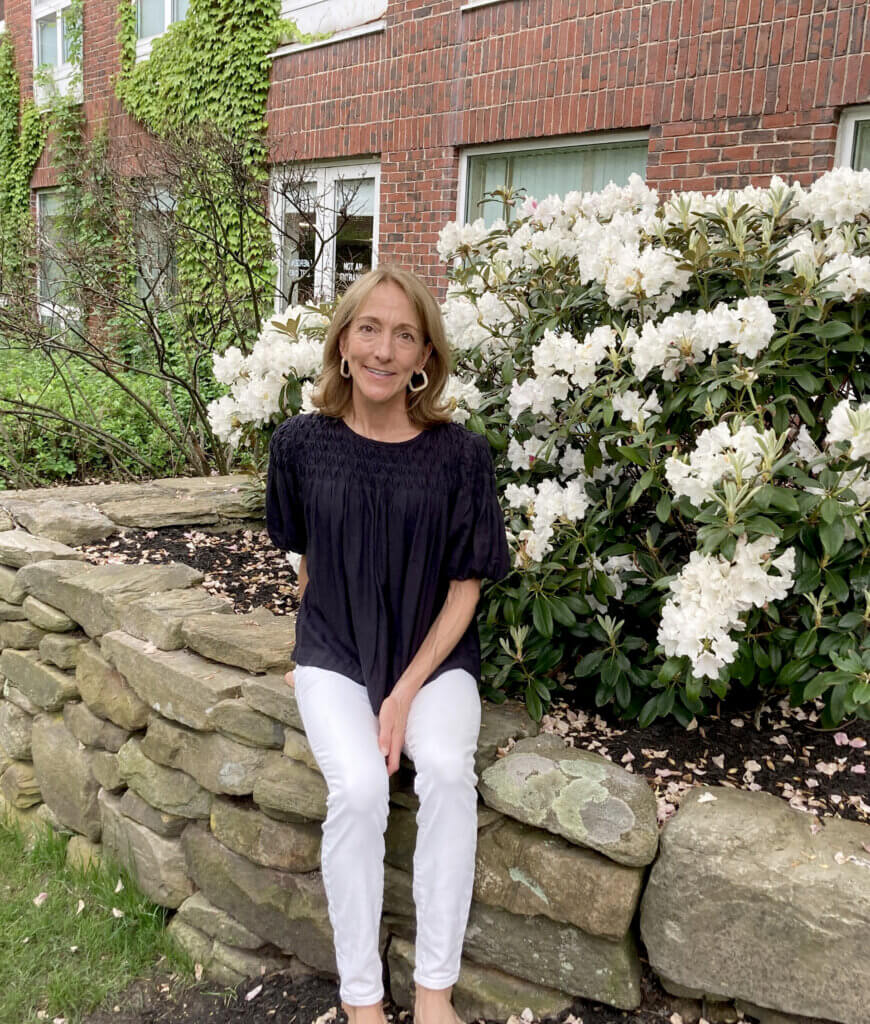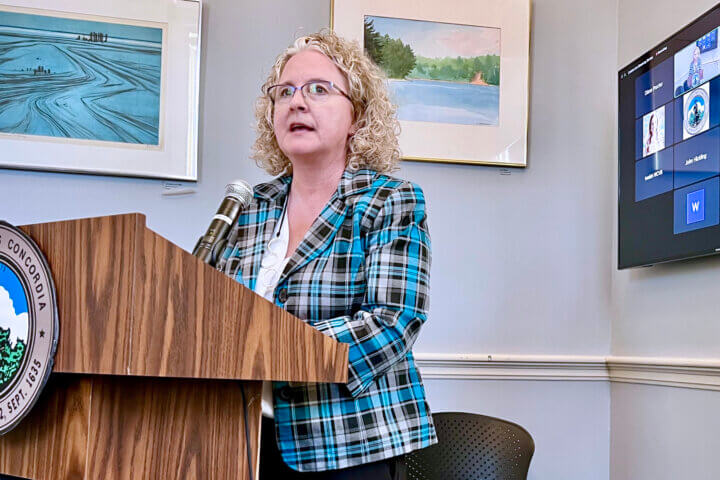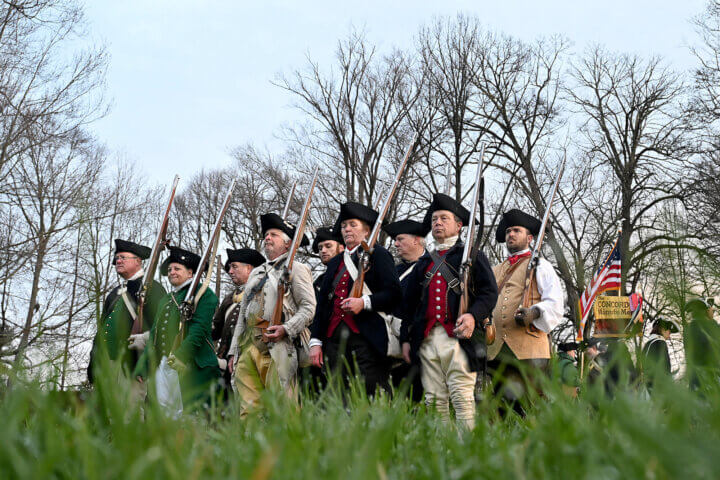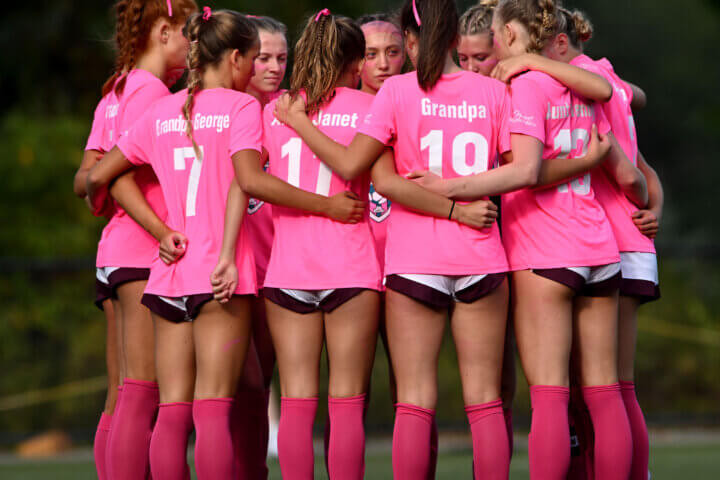By Beth Herman
In June 1924, the Emerson Hospital Association was a fledgling health resource, one just months away from a financial crisis. By October 15, it faced shuttering its doors forever.
According to Emerson’s centennial booklet, the newspaper headlines and flyers urging a response were “dramatic.”
“There is need of prompt action!” one said. “Does nobody care? … Today there is not a pound of coal in the bins for heat, and no money to pay the nurses. Can nothing be done?” asked another.
The quickly formed Emerson Hospital Aid Society set an ambitious goal of $50,000 in donations to save the facility. By that November, it had nearly doubled its goal, raising about $90,000 — nearly $1.6 million in today’s dollars, according to AmortizationTable.org. After briefly closing, Emerson Hospital reopened that November.
A century later, Liza Carey feels a similar urgency. Carey is a year into her two-year term as president of the Auxiliary of Emerson Health (the erstwhile Aid Society).
“We jump in running,” Carey says.
In addition to providing the “fresh set of eyes” the auxiliary sought in appointing her, she draws on a wealth of experience. Carey was president of the Board of Directors of the Concord Carlisle Community Chest. She’s also worked with the Concord Museum, Concord Country Club, and Nashoba Brooks School.
Then and now
This year, the 300-member auxiliary celebrates its 100th anniversary, its journey marked by many milestones.
“It all literally started with the doctors’ wives going door to door to collect money to keep the hospital open,” Carey says.
During the Great Depression, mending bed linens and soliciting food donations were priorities. Carey contrasts that with the auxiliary’s current agenda of promoting issues, including women’s well-being, aging well, and financial health through expert-led seminars and events.
“Today, the auxiliary is what helps set Emerson apart from other hospitals with the kind of work that we do.”
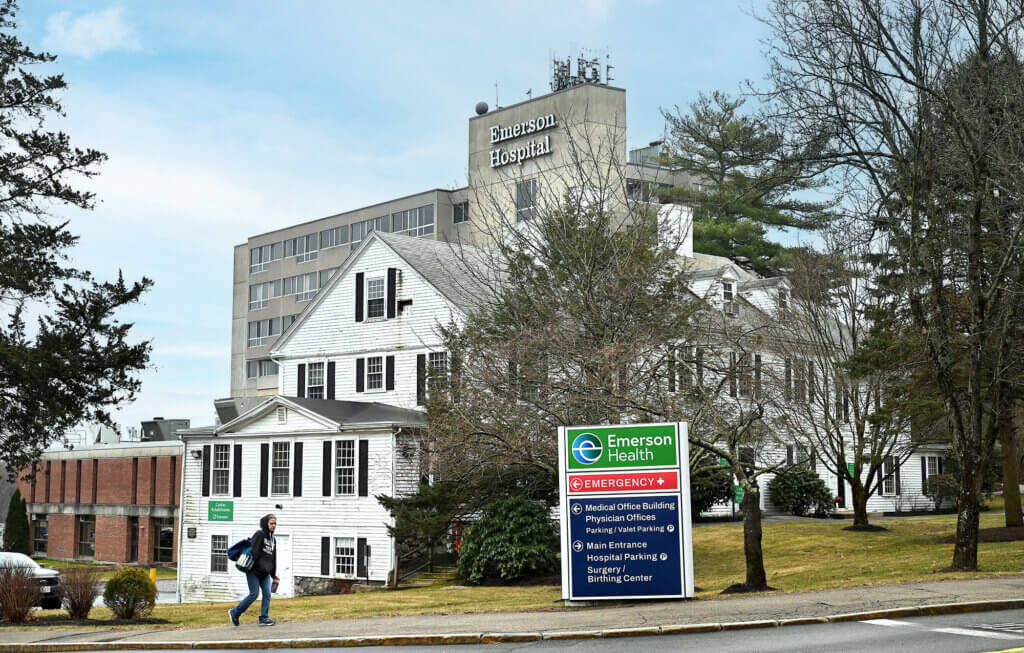
Fueling the good works
Auxiliary efforts include raising more than $100,000 for the hospital each year, with an additional $40,000 going to cancer patients through the annual 5k Run-Walk for Cancer Care. In recent years, funds have also gone to support the Special Care Nursery, Maynard Urgent Care, and the Naka Infusion Center.
An annual April a cappella event — featuring groups from Tufts, MIT, and throughout the area — raises more than $20,000 to support inpatient and outpatient behavioral health.
“This year it was so popular, we had both a matinee and evening performance,” Carey says. “Overall, we’re trying to increase community-oriented events utilizing the expertise we already have at the hospital.”
‘Coping kits’ and ‘brave gowns’
Everything the auxiliary does is intended to enhance the patient experience, Carey says. The organization also sees itself as very much “behind the scenes, supporting the work of the hospital’s superheroes: the doctors and staff.”
Each year, the auxiliary provides 3,300 “coping kits” replete with crayons, coloring books, teddy bears, and other diversions. These go to children in the emergency department, those undergoing surgery, or even to their siblings, Carey explains.
“It keeps them calm during procedures,” she says. “The kits ease their fear of separation and surgery and the long waits.”
Superhero johnnies — also called “brave gowns” — are for children undergoing surgery. “It normalizes what can be a very scary experience,” Carey says. “And they get to take them home. It’s a positive takeaway from being in the hospital.”
The auxiliary also sponsors “anchor bags” for kids coming in for behavioral health issues. The bags provide fun tools for distraction and expression, such as cards, journals, and fidget toys.
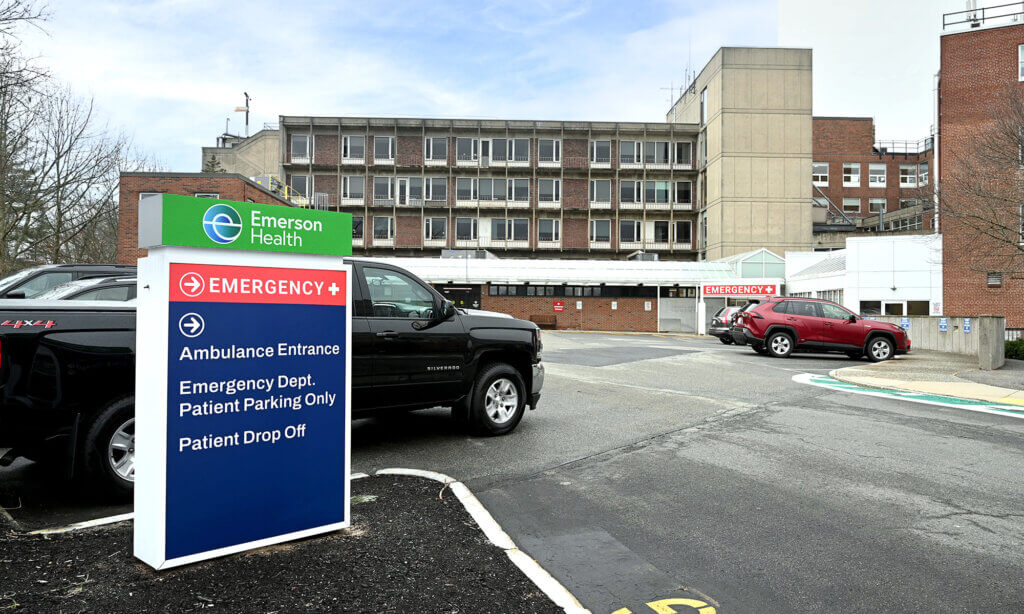
Biking for independence
Carey is especially proud of iCanShine, a weeklong bike camp billed on Facebook as “transformative” and run by Emerson’s physical therapy department. iCanShine teaches younger and older special needs children how to ride.
“Every camper leaves able to ride on their own, which gives them a tremendous sense of independence,” says Carey, herself an avid cyclist who has long participated in the annual Pan-Mass Challenge to benefit cancer care. “They can play in their neighborhood and even ride their bikes to work.”
Overall, “Having [Emerson] as a resource in your backyard is something you may take for granted until you absolutely need it. I’m so grateful it’s here,” she says. “The auxiliary is a great way for us all to give back.”



